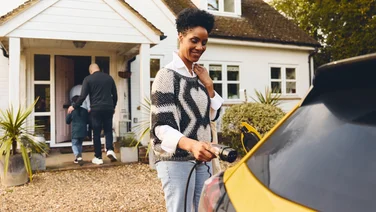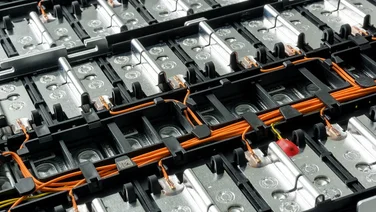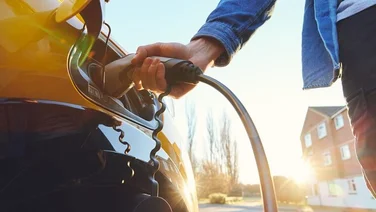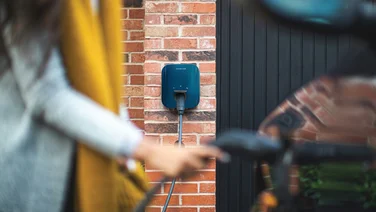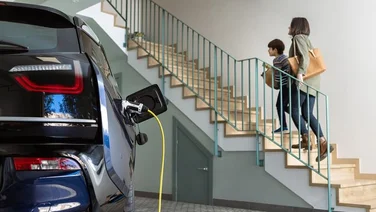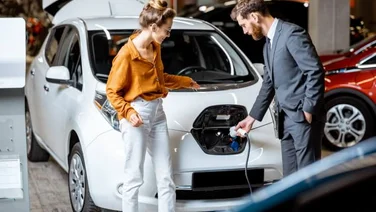We receive a small fee from trusted installers when you request a quote through our site. This helps us keep our content independent, well-researched and up to date – Learn more
- Are electric scooters legal in the UK?
- Where in the UK are they trialling electric scooters?
- How green are electric scooters?
- Are electric scooters dangerous?
- Do you need a driving licence to use an electric scooter?
- What’s the penalty for using an electric scooter illegally?
- Is the electric scooter law likely to change soon?
- Summary
Electric scooters, or e-scooters are a contentious topic when it comes to transport in the UK. They’re cheaper than spending money on an electric car, or paying the price to install an electric car charging point, but controversial nonetheless.
But are e-scooters actually legal in the UK? Despite them often being sighted on the street, privately owned scooters are not legally allowed on British roads, pavements, or in public spaces, barring a few trial areas.
The Eco Experts investigated, looking at the rules, why they’re not allowed on pavements, where in the UK electric scooters are being trialled, and whether the law will change any time soon.
If you decide to get an electric vehicle instead, it’s worth looking into how much an electric car charging point costs for your home, and then filling in this quick form to receive free quotes from our trusted installers.
Get free EV charging point quotes
Answer a few quick questions, and our trusted installers will send you bespoke EV charging point quotes – for free.

Are electric scooters legal in the UK?
Right now, you can go out and purchase an e-scooter for personal use. What you can’t do, legally at least, is use your e-scooter anywhere other than on your personal property.
That means no riding on roads (including cycle lanes), no riding on pavements, and no riding in any public spaces.
You could in theory ride your e-scooter on UK roads if you were able to register, tax, and insure it, but that isn’t currently possible.
If you do choose to use your e-scooter in public spaces, you run the risk of having it taken away and impounded. You can also receive up to six points on your existing or future driving licence.
Not all e-scooters are illegal mind you – just privately owned ones. There are actually e-scooter trials happening in London right now, with people able to rent and ride them in Canary Wharf and selected boroughs (Richmond, Ealing, Hammersmith and Fulham and Kensington and Chelsea).
Other locations around the UK are also trialling e-scooters.
Why are electric scooters not allowed on pavements?
Electric scooters are not allowed on pavements, legally at least, thanks to an old law – the 1835 Highways Act.
This 187-year-old law forbids the use of ‘carriages’ on pavement and e-scooters technically fall under that category.
The old rule has frustrated e-scooter businesses, who argue that the archaic ruling is “not fit for the 21st century.”
There are plenty who argue otherwise, saying that e-scooters represent a real threat to pedestrians.
Until there is an overhaul of the 1835 Highways Act, it seems e-scooters will remain illegal on pavements for some time yet. However, that hasn’t stopped plenty of people buying them in increasing numbers.

Where in the UK are they trialling electric scooters?
In an effort to test their feasibility as a legitimate form of transport, the UK government has sanctioned trials in a few select areas.
More than 30 locations are currently taking part in the trial, including parts of London, Newcastle, Oxfordshire, and Bristol.
The trials, including those in London, don’t allow personally owned e-scooters to be used. You can instead hire one for £1 using an app, with an extra charge of 14–20p per minute.
All e-scooters involved in the trial cannot exceed 15.5 miles per hour either, with some areas limiting the speed even more.
The companies selected for the trial were Lime, Dott, and Tier Mobility, who have all rolled out their e-scooters to the trial locations.
How green are electric scooters?
E-scooters have often been promoted as a green alternative to other forms of transportation, and on paper this makes sense.
After all, they’re powered entirely by electricity and don’t emit any fumes.
Ride share company Lime said their e-scooters “reduce dependence on personal automobiles for short distance transportation and leave future generations with a cleaner, healthier planet.”
But is this the whole picture? Researchers from the North Carolina State University looked into the emissions associated with an e-scooter’s lifetime:
- The production of the materials and components that go into each scooter
- The manufacturing process
- Shipping the scooter from the manufacturer to its city of use
- Collecting, charging, and redistributing the scooters
Looking at all these factors, they found that e-scooters actually produce more emissions than a busy bus*, an electric bicycle, or an electric moped.
They did still conclude the e-scooters are greener than driving a car, and that the longer a scooter operates, the more time it has to offset the emissions needed to build, transport, and collect it.
To make e-scooters even more green, you could try getting a solar scooter, which is basically an e-scooter with solar panels.
*as more people ride a bus, the total emissions are further offset
Are electric scooters dangerous?
Despite the convenience of e-scooters, many argue they’re too dangerous to be allowed on UK streets.
There have already been a sizable number of accidents involving e-scooters, which the UK government’s Department for Transport has been recording.
In the first half of 2021, there were more collisions involving e-scooters than in the entirety of 2020. That’s 258 collisions between January and June 2021, compared to 266 for the whole of 2020.
There have already been a number of deaths involved with e-scooters too, with three e-scooter riders dying between June 2020 to June 2021.
In 2019, a popular YouTuber was killed riding an e-scooter when she collided with a lorry on a roundabout. And in March 2022, a teenage girl died after her e-scooter collided with a van in London.
After a series of fires on London trains, Transport for London (TFL) banned all e-scooters on its entire network from December 2021, even if the scooter is folded.
The batteries within e-scooters can burst into flames when ruptured, releasing toxic fumes in the process.
There are plenty of people complaining about how disruptive e-scooters are when trying to navigate city streets.
Jess White, a London resident, described how “an electric scooter driver nearly ran over my dogs, because they were speeding down a walking path without care or consideration for other path users. More regulation as to when and where they can be used is required.”
Not everyone sees e-scooters in such a negative light. Another London resident said they’d love to use e-scooters more but that they were “just too slow” and that “parking locations were limited.”
They added that if the infrastructure was better, they’d “love to use them more often because I think that would make them a good idea, and for me, a lot of fun.”
Speaking with electric scooter companies
The Eco Experts contacted a spokesperson from Dott, one the companies currently taking part in the e-scooter trials happening across the UK.
We asked them what we feel are some of the most important questions surrounding the green credentials of e-scooters:
- How often do you usually replace e-scooters?
- Do they break down regularly?
- Are you using electric vehicles to pick up scooters?
- If not, do you have any plans to switch to electric vehicles?
Dott have said their e-scooters are checked for safety with every battery swap, which happens around every 10 rides. They didn’t clarify how long each ‘ride’ will last, which does prompt concerns about how quickly e-scooters burn through batteries.
Especially considering the ongoing lithium shortage – a crisis that is already impacting the electric vehicle boom.
They did say however that their first-generation e-scooters are still in use, thanks to careful vehicle maintenance. Dott believes that their latest generation of e-scooters will exceed their five-year lifespan.
When their e-scooters do need to be collected for maintenance and battery swapps, Dott say they use a mixture of cargo bikes and electric vehicles. The other two companies involved in the trial, Lime and Tier Mobility, were unavailable for comment.

Do you need a driving licence to use an electric scooter?
To legally ride an e-scooter in one of the trial locations, you must have a category Q driving licence. Full or provisional driving licences with categories AM, A, or B include category Q permissions.
If you’re only on a provisional driving licence, you won’t need to attach L plates to your e-scooter.
For people with an overseas provisional licence, you won’t be able to legally ride an e-scooter anywhere in the UK.
What’s the penalty for using an electric scooter illegally?
Using an e-scooter illegally carries the risk of a £50 fine for riding one on a pavement. Getting caught using your mobile phone or riding through a red light carries a stricter penalty – a £100 fine and six penalty points on your driving licence.
Bringing an e-scooter anywhere along TfL’s network could cost you £1,000, as well as getting your scooter confiscated.
You can also be fined up to £300 for riding without insurance, but as all rental companies have to insure they’re fleet, this won’t apply to you. When or if privately owned e-scooters are legalised, you will need to insure it.
Is the electric scooter law likely to change soon?
Calls for e-scooters to be legalised have been coming from MPs over the last couple of years, with the Transport Committee saying they should be legal for use on roads, if not pavements.
Some of the reasons behind the calls for legalisation include:
- Offering faster journey times than cars in congested areas
- More affordable personal transport for poorer people
- Cleaner, low-carbon alternative to petrol-powered mopeds
Also, the London Cycle Campaign (LCC) have said e-scooters are potentially a great alternative for people who either can’t or don’t want to cycle.
Summary
E-scooters will remain a divisive issue. They might be greener than ordinary cars, but their eco credentials are damaged by their short lifespan and their need to be picked up by trucks when they break down.
If the UK does legalise them then there’s the real possibility that accidents involving them will increase. It’s already difficult enough for people with disabilities to navigate busy streets without having to worry about e-scooters.
Improving the safety of e-scooters is vital before they can fully take to our streets.
If you’re curious to learn about how the UK feels about other green technologies such as electric vehicles, check out our 2023 National Home Energy Survey.

